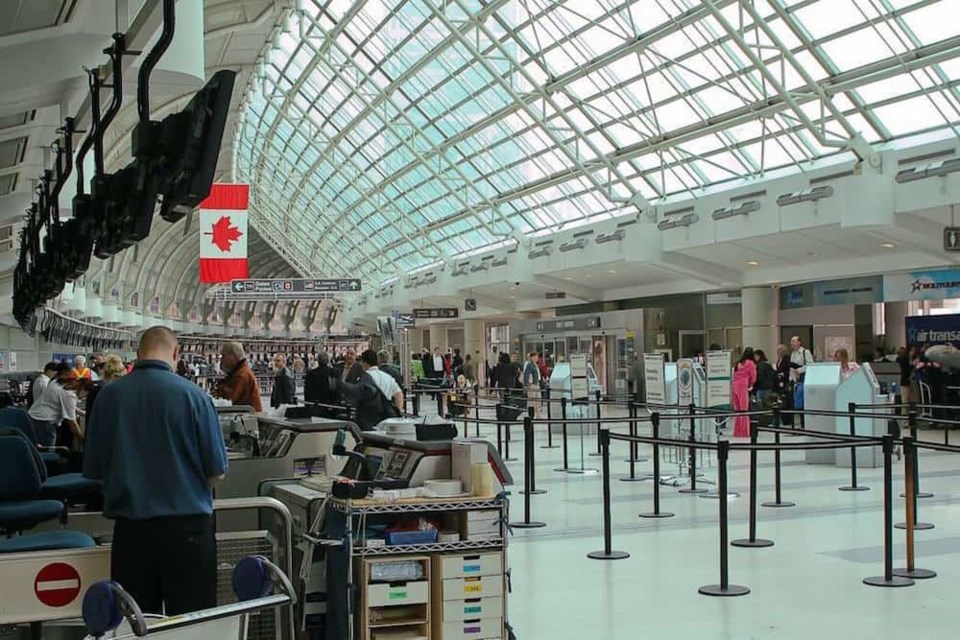If you're wondering when it will be safe to travel again, you are far from alone.
When it is safe to travel again, there will be several changes to consider. If you've had to fly anywhere recently, you're probably already aware of some of them.
Earlier this month, Transport Minister Marc Garneau issued an Interim Order formalizing the new COVID-19 testing requirements for all air travellers coming into Canada.
Now, everyone flying into Canada will need to have proof of a negative laboratory test result for COVID-19 to the airline prior to boarding their flight.
However, since it is the beginning of the program, there will be some exceptions for travellers departing from some countries that need time for the testing systems to adjust.
For example, travellers departing from Saint Pierre et Miquelon are exempt from the requirement to show proof of a negative COVID-19 test until Jan. 14, and travellers departing from Haiti, until Jan. 21, 2021, but they are strongly encouraged to get a COVID-19 test once they arrive in Canada. Travellers departing from the Caribbean or South America can use tests conducted within 96 hours of departure (instead of 72 hours) until Jan. 14, 2021.
Regardless, these exceptions are time-limited, and all travellers should consider how they plan on providing proof of this test before they book their book tickets, as well as what their insurance will cover.
What to know before you go
Dreaming of surf, sand, and fun in the sun?
Now is probably not the best time to escape to a tropical destination, no matter how tempting a holiday might feel.
While there currently isn't a law against travel outside of Canada during the pandemic, the federal government says you should avoid non-essential travel outside Canada until further notice.
InsuranceHotline.com’s insurance expert, Anne Marie Thomas, tells Vancouver Is Awesome in a phone interview that there are several things to consider before you book your next trip--whether it is for essential purposes or not.
For one, Thomas underscores that you should never make an assumption when booking travel insurance. In other words, just because the word "all-inclusive" is in the title, don't assume that means you're covered for everything under the sun. The devil is in the details, so you want to make sure that everything is accounted for.
"Travel insurance is really set up for the unexpected. Nobody plans to break their leg, so that's unexpected. So a travel insurance provider will pay to get your leg fixed," she explains.
"But COVID-19? That's not a surprise to anybody. If you travel you are knowingly putting yourself at risk."
While several travel insurance providers offer COVID-19 coverage, not all of them do. Thomas adds, however, to be wary of some of the plans that they offer. Since the pandemic began, she says numerous companies have slashed their prices and offer COVID-19 coverage at a reduced rate. However, many of the plans only cover up to $100,000 for COVID-19 coverage, which might not be enough.
"If you end up on a ventilator, $100,000 might not get very far," she notes.
Another consideration, Thomas explains, is that travel requirements are changing so frequently, and most travel insurance providers won't cover them right away. Still, the coverage will depend on who you booked with, and what policy you chose: "It's not a one size fits all approach."
Nonessential travel
First and foremost, Thomas says that "unless it's essential, don't go. It's a nonessential travel advisory."
If you choose to travel despite these advisories, the Government of Canada highlights that:
- you may have difficulty obtaining essential products and services
- you may have limited access to timely and appropriate health care
- you may suddenly face strict movement restrictions and quarantines at designated facilities and at your own cost
- your insurance may not cover your travel or medical expenses
- we may have limited capacity to offer you consular services
As for when you'll be able to book a trip, Thomas says it is okay to book several months down the road--but you should ensure you have the appropriate insurance policy, in case you have to cancel.
Province to province travel in Canada
When you leave your province, you'll also need travel insurance, says Thomas.
B.C. residents are strongly advised to purchase additional health insurance when travelling to other Canadian provinces to cover the cost of services not included in the reciprocal agreement between provinces.
When purchasing travel insurance, you are advised to obtain insurance that will cover the additional costs for physician and hospital care and for the provincial services that are not insured outside B.C. such as prescription and ambulance services, and transportation back to B.C.



